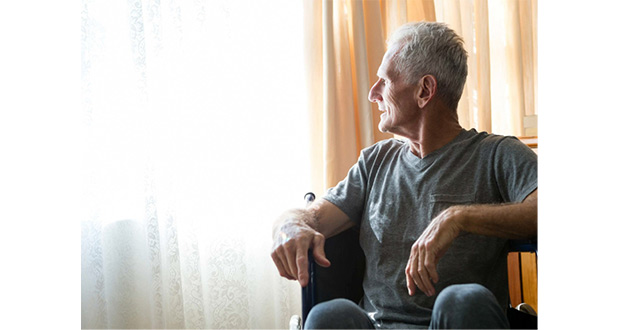Dying Patients Left In Limbo Waiting For Urgent Care
 Dying patients in England are frequently denied the chance to fulfil their wishes to die at home, due to failings in the fast-track system of care that allows them to leave hospital quickly.
Dying patients in England are frequently denied the chance to fulfil their wishes to die at home, due to failings in the fast-track system of care that allows them to leave hospital quickly.
The terminal illness charity Marie Curie estimates that as many as 10,000 people in England may die in hospital every year waiting for a package of urgent care to enable them to go home.
A new report by Marie Curie shows there is a wide variation in the length of wait for a package of care experienced by terminally ill people living in different parts of England. It also suggests that the problem is getting worse.
People who are dying (or have a rapidly deteriorating condition) are entitled to an NHS package of care within 48 hours, known as Fast Track Continuing Healthcare (CHC), which enables them to be supported outside of the hospital. The aim is to ensure that people do not spend any more of their final days and weeks in hospital than necessary.
Data obtained from Clinical Commissioning Groups (CCGs) through Freedom of Information (FOI) requests2 show that in some parts of the country, people who are dying can experience average waits of 19 days in hospital for urgently needed care to be put in place. While in other areas, dying patients miss out completely on this crucial care.3
Among the poorest performing CCGs, there are a number who are only able to provide care to half, or even less, of the dying patients who are entitled to fast track care.4 While 17% of the CCGs reported that more than 30% of their patients did not get the care they needed. The charity says that the longer a person waits, the more likely that their condition will deteriorate to the point that they cannot leave hospital, and then may die on a ward.
The situation is also getting worse. When comparing FOI data from 2016/7 and 2017/8, the findings show that fewer CCGs are meeting the 48 hours guidance and substantially more are falling into the 2-7 days range.
Only 22% of CCGs (who provided data) could meet the 48-hour deadline for getting fast track care in place to enable dying people to be cared for outside of hospital. While most CCGs could provide this care within the 2-7 days range, 28% of CCGs (30) reported average delays of a week or more, of which eight CCGs had delays of more than 12 days.
Matthew Reed, Chief Executive of Marie Curie, said: “The report paints a bleak picture. No-one wants to be stuck in hospital at an already difficult time, if they don’t want or need to be there. While hospitals offer some of the best care available, they are often not the best place for someone to be cared for at the end of their lives.
“Any delays will inevitably lead to people dying in hospital before arrangements can be put in place. When time really matters, it’s important that no-one is left in limbo and denied their wish to spend their last remaining days at home surrounded by loved ones.”
The report also raised concerns about the widespread gaps in the data that CCGs could provide. Only half (51%) of the CCGs that responded to the FOI requests could provide data for all the questions asked. While alarmingly, more than a third (36%) were unable to provide any of the requested data.
Simon Jones, lead author, and Director of Policy and Public Affairs at Marie Curie, said: “The fact that so many CCGs in England do not have the right information to hand is a significant cause for concern. Without this crucial data being readily available, issues in the service will be much harder to identify, prevent and improve. While some CCGs can meet the two-day deadline for care, it is alarming that some areas of the country struggle to provide the support that dying people are entitled to.”
The CCGs reported differing reasons why they encountered problems getting fast track care in place; including, avoidable errors in CHC paperwork; lack of care home places; gaps in community care provision; CHC approval service only functions Monday-Friday and/or in office hours only; patients’ conditions deteriorating; and family members not being able to view care homes quickly enough to make their choice of preferred place of care.
The charity says more CCGs and central Government need to refocus efforts and resources to improve fast track care at the end of life, to ensure that dying patients get the chance to fulfil their final wishes.





